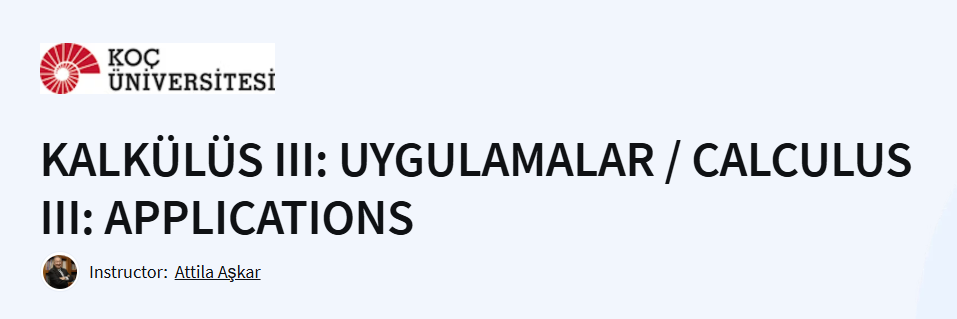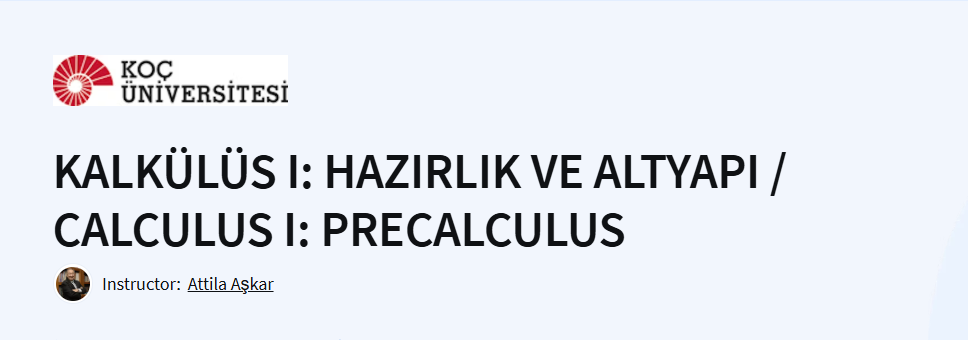What you will learn in Calculus: Single Variable Part 2 – Differentiation Course
Understand the foundational concepts of differentiation in single-variable calculus.
Learn about derivatives, differentiation rules, linearization, higher derivatives, optimization, differentials, and differentiation operators.
Apply differentiation techniques to solve real-world problems in engineering, physics, and economics.
Program Overview
A New Look at Differentiation
⏳ 3 hours
- Reconsider the concept of derivatives beyond slopes, introducing asymptotic (big-O) notation to describe and understand rates of change and the rules that govern them.
Putting Derivatives to Work
⏳ 3 hours
- Explore core applications of derivatives, including linearization, higher derivatives, and optimization, to see how understanding asymptotics assists in building applications of the derivative.
Differentials and Operators
⏳ 2 hours
- Delve into the concept of differentials, arising from implicit differentiation, revealing a deeper level of understanding of what differentiation means.
Get certificate
Job Outlook
Enhances mathematical proficiency for careers in engineering, data science, and computational modeling.
Provides a solid foundation for advanced studies in mathematical theory and analysis.
Completing this course can bolster qualifications for roles requiring strong analytical and problem-solving skills.
Explore More Learning Paths
Advance your calculus and mathematical skills with these carefully selected courses designed to strengthen your foundation and apply advanced concepts in engineering, data science, and machine learning.
Related Courses
Calculus: Single Variable Part 1 – Functions Course – Build a solid understanding of functions, limits, and introductory calculus concepts to prepare for differentiation and integration.
Vector Calculus for Engineers Course – Apply calculus to multi-dimensional problems in engineering, focusing on vector fields, gradients, and divergence.
Mathematics for Machine Learning: Multivariate Calculus – Explore multivariable calculus concepts crucial for optimization and machine learning algorithms.
Related Reading
Gain deeper insight into the role of calculus in real-world applications:
What Is Python Used For? – Understand how Python leverages calculus and mathematics for programming, data analysis, and machine learning applications.
Specification: Calculus: Single Variable Part 2 – Differentiation Course
|
FAQs
- Yes, some prior knowledge is strongly recommended. Understanding limits, basic algebra, and functions is crucial before tackling differentiation.
- This course is structured as Part 2 of a series, so ideally, you should complete Part 1 or have equivalent knowledge.
- Without this foundation, you may find advanced rules and applications of derivatives challenging to follow.
- If you’re new to calculus, spending a little time revising functions, graphs, and limits will greatly smooth your learning journey.
- Differentiation is widely used in economics and finance, such as predicting marginal cost, revenue, and profit to optimize decision-making.
- In physics and engineering, it’s applied to measure rates of change like velocity, acceleration, and optimization in design.
- In computer science and data science, derivatives play a key role in machine learning, optimization algorithms, and neural network training.
- Even in fields like biology or medicine, differentiation models growth rates, population changes, and drug dosage optimization.
- By the end of this course, you’ll see that differentiation is more than abstract math—it’s a tool that helps solve real-life problems.
- Yes, this course is designed to strengthen your foundation in differentiation, which is a major part of most university-level calculus courses.
- The course explains concepts clearly, which can help you understand topics often rushed in classroom settings.
- Practice quizzes and exercises mimic the type of questions you’ll likely encounter in exams, reinforcing your problem-solving ability.
- However, while it’s an excellent supplement, it doesn’t cover the exact syllabus of every university. You may still need to cross-reference with your institution’s curriculum.
- Students who combine this course with their regular studies often feel more confident tackling challenging exam questions.
- On average, 4–6 hours per week is sufficient to grasp the lessons, complete exercises, and review quizzes.
- Breaking the content into shorter study sessions (e.g., 1–2 hours a few times per week) tends to be more effective than long cramming sessions.
- If you already have a strong math background, you may progress faster. Beginners, however, may need to spend extra time revisiting core concepts.
- Consistency matters more than intensity—steady weekly practice ensures the ideas stay fresh.
- A good approach is to set weekly goals (such as completing one module and its exercises) and adjust based on your comfort level.
- Yes, differentiation concepts appear in multiple competitive exams, especially those with quantitative or technical sections.
- For the GRE and GMAT, knowing how to work with rates of change, optimization, and graphical analysis can give you an edge in problem-solving.
- Engineering entrance exams often include calculus questions, where mastering differentiation rules can save valuable time in solving problems.
- Beyond exams, the logical reasoning and structured problem-solving skills developed here are valuable for any analytical test.
- While this course won’t serve as a complete exam-prep package, it significantly strengthens one of the core mathematical areas tested.





